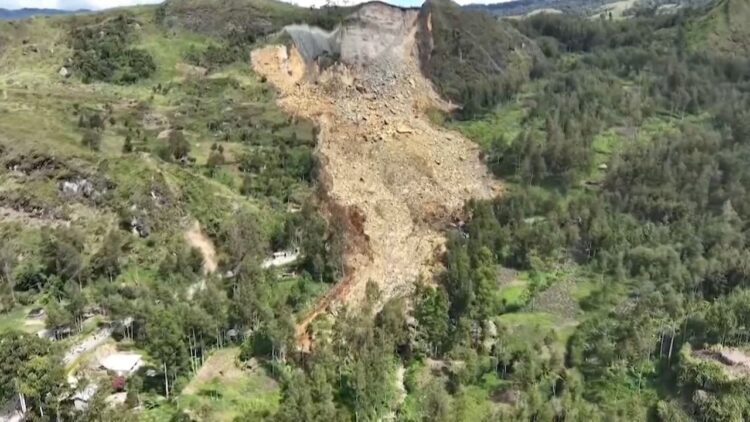More than 670 people are feared dead following a devastating landslide in Papua New Guinea, a UN official reported to AFP. Aid workers and villagers are navigating dangerous conditions as they desperately search for survivors.
“There are an estimated 150-plus houses now buried,” said Serhan Aktoprak, a UN migration agency official. “670-plus people are assumed dead.”
The situation remains perilous, with ongoing land movement and running water creating significant risks, Aktoprak added. The once-bustling hillside village in Enga province was nearly obliterated by the landslide, which struck in the early hours of Friday morning, burying numerous homes and their sleeping inhabitants.
“People are using digging sticks, spades, and large agricultural forks to remove the bodies buried under the soil,” Aktoprak reported.
Over 1,000 people have been displaced, with food gardens and water supplies nearly wiped out. Initial estimates suggested 100 to 300 casualties, but the death toll was revised upward as disaster workers realized more people resided in the village than previously thought. The village, home to over 4,000 people, served as a trading post for alluvial miners in the highlands region.
By Saturday night, five bodies had been recovered from the debris. Tribal fighting has erupted along the only route into the disaster zone, although Aktoprak clarified that the violence is “not related to the landslide.” Papua New Guinea’s military is providing “security escort” to ensure the safe passage of aid convoys.
The landslide, consisting of car-sized boulders, uprooted trees, and churned-up earth, was estimated to be eight meters (26 feet) deep in some areas. Locals suspect the landslide was triggered by heavy rains that have recently saturated the region.
Papua New Guinea experiences one of the world’s wettest climates, particularly in the humid highland regions, according to the World Bank. Images from the site show barefoot workers using shovels and axes to shift the earth, while others sift through mangled piles of corrugated iron that once provided shelter.
Heavy machinery, crucial for the rescue and recovery efforts, was expected to begin arriving at the site on Sunday.

















Comments